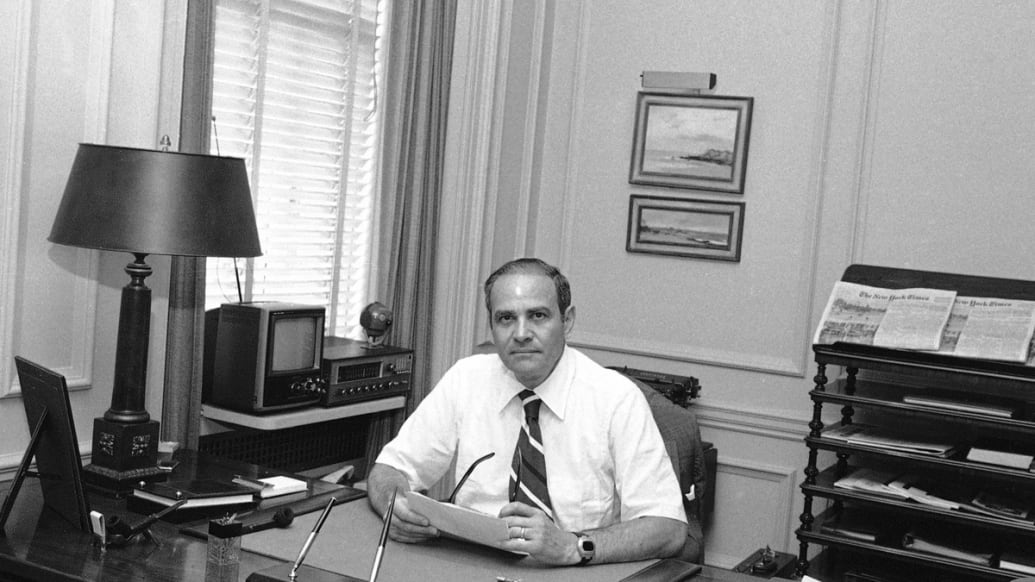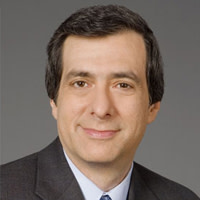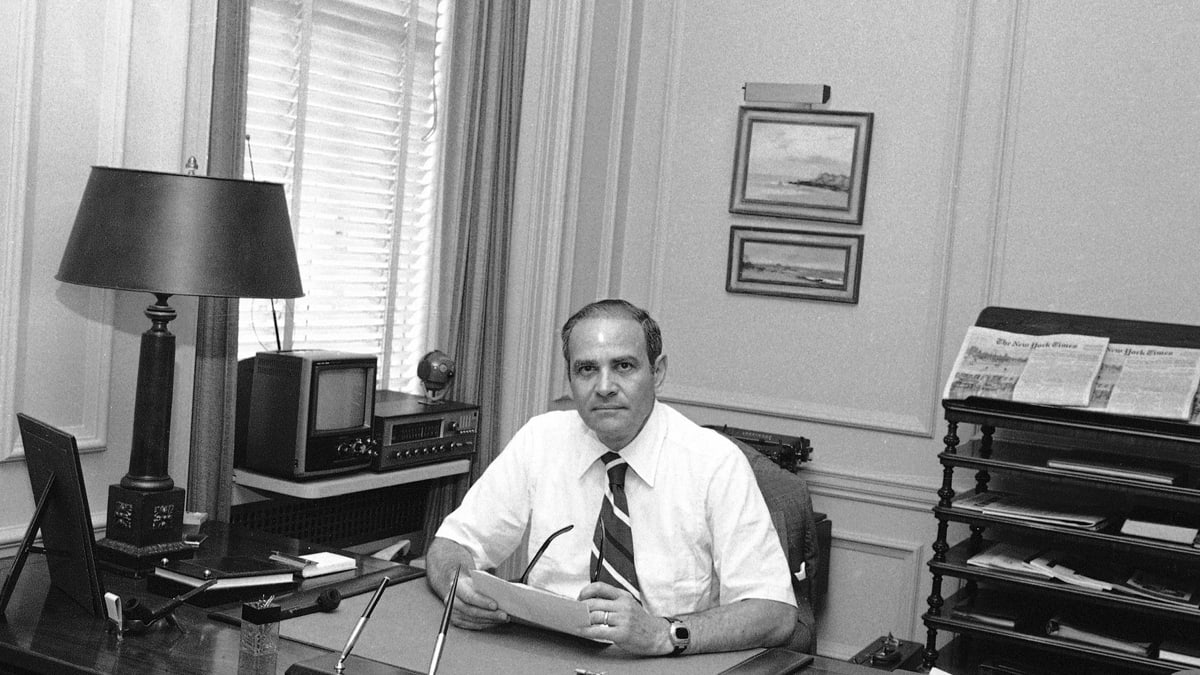It is probably not much of an overstatement to say that Arthur Ochs Sulzberger saved The New York Times.

Sulzberger, who died Saturday at 86, was a behind-the-scenes eminence who quietly guided the nation’s premiere newspaper through a turbulent period. He was a throwback to an earlier era, when men—they were almost always men—treated a newspaper as a public trust (which is, of course, easier to do when your family controls the voting stock).
But in a 34-year career as Times publisher and as CEO and chairman of The New York Times Co., the man known as Punch diversified the operation in a way that guaranteed its future. His son, Arthur Sulzberger Jr., is the current publisher and chairman.
It is hardly a given for family-owned newspapers to remain that way. In fact, the Sulzbergers and the Grahams, who control the Washington Post Co., are the exceptions. Elsewhere, squabbles in successor generations led the Chandlers to sell the Los Angeles Times, the Bancrofts to sell The Wall Street Journal and the Taylors to sell The Boston Globe (to the Times Co. for $1.1 billion, a huge overpayment that represented one of Sulzberger’s few financial blunders).
Sulzberger was the grandson of Adolph Ochs, who bought the Times in 1896 and turned it into a leading American paper.
Sulzberger had been out of public view during a long illness, according to the Times obit, but he avoided the limelight even when he was running the show. He occasionally wrote letters to the editor under the pen name A. Sock, but stopped after he feared he had been found out.
The most dramatic episode of Sulzberger’s tenure was the 1971 battle over the Pentagon Papers, in which the Times defied the Nixon administration by publishing a secret history of the Vietnam War. Sulzberger’s stance, later vindicated by a Supreme Court ruling, was a watershed moment for the establishment of an aggressive press refusing to be cowed by national-security arguments.
More enduring, perhaps, is what Sulzberger did on the financial front after taking over as publisher in 1963, making him, at 37, the youngest publisher in the paper’s history. He ended the separate fiefdom built around the Sunday paper, folded the international edition and took the company public in 1969, beginning an expansion in which he snapped up magazines and television stations.
In the late 1970s, Sulzberger expanded the Times from two to four daily sections, and gradually introduced Weekend, Living, Home, Sports, and Science. It seems archaic now to recall how controversial this was at the time, with purists arguing that the paper was sullying its hard-news image with softer features designed to appeal to advertisers. But the revenue those sections attracted helped underwrite the Times newsroom and its network of national and international bureaus.
What’s more, Sulzberger launched national and regional editions of the Times, a gamble that established it as one of three national newspapers, along with the Journal and USA Today. And before he relinquished the chairman’s title in 1997, the Times started a website that would become one of the most highly trafficked in the news business.
The pipe-smoking Sulzberger generally let his editors run the Times, but he could take bold steps when he saw fit. He sparked a furor in 1973 by hiring William Safire, a Nixon speechwriter, as an op-ed columnist during the Watergate scandal. Safire went on to become a respected conservative voice and won a Pulitzer Prize.
While the Times faces financial difficulties today, Sulzberger turned it into a major journalistic force. As the obituary noted, the company’s revenue in 1963 was $101 million, nearly all of it from the flagship paper. When Sulzberger stepped down in 1997, revenue was $2.6 billion, about half of it from the newspaper.
Abe Rosenthal, the longtime Times editor, called Sulzberger “the most insufficiently estimated publisher in modern American journalism.” Given the obstacles he faced over more than three decades, it is safe to say he packed quite a punch.

